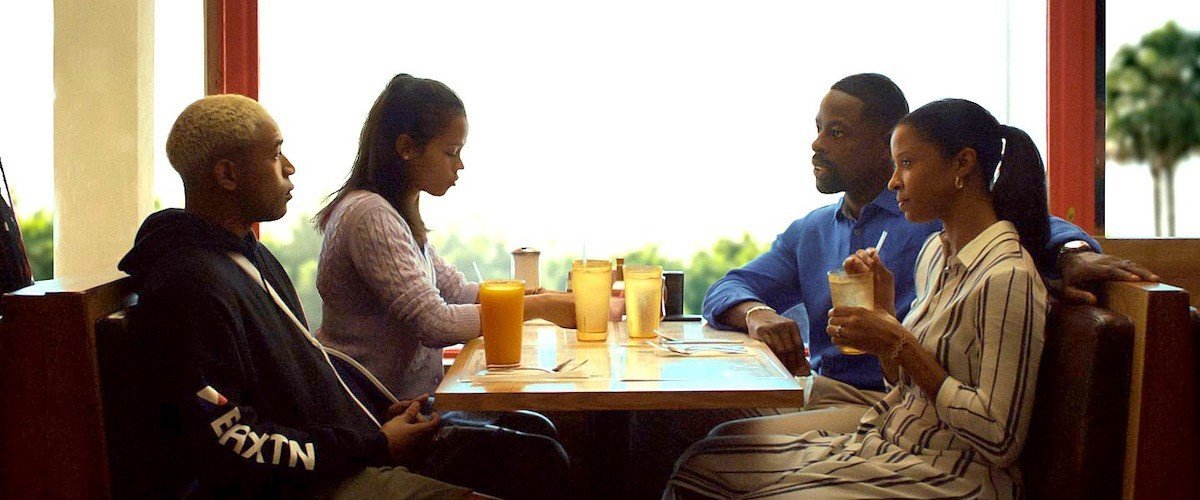This is the 4th movie titled Waves. I’m surprised there are not more to be honest. If you name your movie Waves, you have built in that your movie takes places on a body of water, pretty much guaranteeing the best acting talent will be at least curious to take on your film. And if you’re as smart as Trey Edward Shults is, you’ll just build your movie around the theme of waves in all they can be. Thankfully, Shults’s Waves is more than just an excuse to shoot in a warm weather location; it’s got emotional waves for days.
In south Florida we are introduced to the Williams family. Tyler (Kelvin Harrison Jr.) dominates the family dynamics, being a star wrestler with aspirations for a college scholarship. His dad Ronald (Sterling K. Brown) puts the fan in fanatic, body building and pushing Tyler to be the best he can be. Mom Catharine (Renee Elise Goldsberry) is more nurturing, plus she helps run the family business with dad. And Emily (Taylor Russell) is the quiet steadying force, perfectly content in her life. In the first of many wave metaphors, storms appear on the horizon for Tyler, as the mounting pressure to succeed is making him push himself really hard, putting strain on his body, his mind, and his family and girlfriend Alexis (Alexa Demie).
The first half of the movie really tries hard to make you feel for this family, especially Tyler. In physics, waves are either constructive or destructive. Tyler appears to be hit with little bits of destructive interference: his shoulder injury doesn’t seem to go away with pain pills, him and his girlfriend become more reckless in their behavior together for a start. But from these little pieces, destructive interference has a way of building and building upon itself. That pain Tyler’s experiencing? Tyler goes to the doctor to ask for help, but he chooses not to tell anyone the results, which casts a pall over the family, as we find out there’re not as close as they appear at the beginning of the film. The saddest realization of the first half of the film is how avoidable all of the drama was if someone wasn’t afraid to express themselves to someone they supposedly care about. Which means Waves eventually becomes an undertow you can’t escape because you didn’t pay attention to the little signs of trouble presented to you.
But as the phrase goes, tide goes in, tide goes out. If Waves were just this first half, it would be a powerful cautionary tale about a family on the verge of trauma. But that movie’s been done a million times before. Trey Edward Shults, with a simple perspective change just…keeps going. By simply continuing after the big turn in the middle of the movie, Waves becomes something more full, and ultimately more rewarding. We get to see people after a fallout, figuring out of they want to grow, or wither way. They can learn from their mistakes, and apply them to new people in their life like Tyler’s fellow wrestler Luke (Lucas Hedges). The 2nd half of Waves brings that constructive interference that helps a good person who bad things have happened to move on and grow. In addition, all of Shults’s disorienting and hazy imagery, ominously used in the first half of the film, transforms into something else entirely by the end.
You go through many Waves watching Trey Edward Shults’s Waves: waves of emotion, waves of violence, waves of storytelling. Some waves are sad. Some waves are happy. All of the waves are rewarding for the rich tapestry that is this movie. Also, for the physics majors out there who know I reversed constructive and destructive interference: I’m sorry, but the metaphor was too good to pass up.

